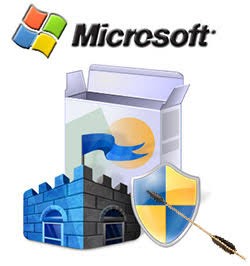Microsoft Antivirus Scores Poor in Three Major Tests
 It looks like Microsoft has failed in providing the most effective antivirus solution for the older Windows 7 version of its operating system. Third parties, on the other hand, have put much more effort in delivering products that can in a better way defend computers running Windows 7 from various malware attacks. Researchers have put several AV solutions to the test regarding three major qualities that each antivirus product should have – protection, performance, and usability.
It looks like Microsoft has failed in providing the most effective antivirus solution for the older Windows 7 version of its operating system. Third parties, on the other hand, have put much more effort in delivering products that can in a better way defend computers running Windows 7 from various malware attacks. Researchers have put several AV solutions to the test regarding three major qualities that each antivirus product should have – protection, performance, and usability.
Currently, Microsoft recommends the integrated Windows Defender as a sufficient tool for the protection of machines running the latest version of the operating system. In Windows 8, Windows Defender is built into the system and replaces the previous security tool that the company offered for older versions of the software called Microsoft Security Essentials (MSE). While the company swears at its Windows Defender for the latest Windows version, it still recommends users running older version to install the extra security tool.
Now, the results of the three tests conducted by the independent tester AV-TEST show that there are third-party anti-virus solutions that are much more affecting in keeping Windows 7 systems safe than Microsoft Security Essentials, taking all three tested criteria into consideration. Microsoft's own security tool scored nearly the worst result, getting on the next-to-last place of all tested anti-virus products. The product got 5 points for protection, 4.5 for performance, and only 4 points for usability. The tests showed that Kaspersky is the best solution for Windows 7 while the last place is taken by Comodo due to weaknesses in the performance that made up for an overall rating of only 12.5. The winner got the maximum number of 6 points in each of the three categories for a total of 18 points, the second place being given to Trend Micro and Bitdefender which were both almost flawless. Bullguard, Avira and Symantec scored third, followed by ESET with, respectively, 17 and 15.5 points.
The AV-TEST also showed that Microsoft Security Essentials' protection against zero-day vulnerability attacks reached 99 percent in the July testing, however, a month later that rate dropped to 97 percent. The rate of detection of widespread and prevalent malware discovered over the last month was almost complete at 99.8 percent. Another positive result was also that Microsoft Security Essentials did not return a single false warning or block while visiting websites. On the negative side, the AV solution marked legitimate software as malware during a system scan in 13 to 15 cases. Also lowering the overall score was the fact that MSE slowed down the system when installing frequently used applications. The impact on standard PC was estimated at 56 percent while on high-end machines that percentage reached 76.
The results are more than bothering for Microsoft security tool since even some of the well-known free-license products performed substantially better in protecting PC from malware attacks according to the AV-TEST research. Finally, it should be pointed out that the most effective way to stay safe online is to avoid potentially malicious websites and never install suspicious files on your computer.